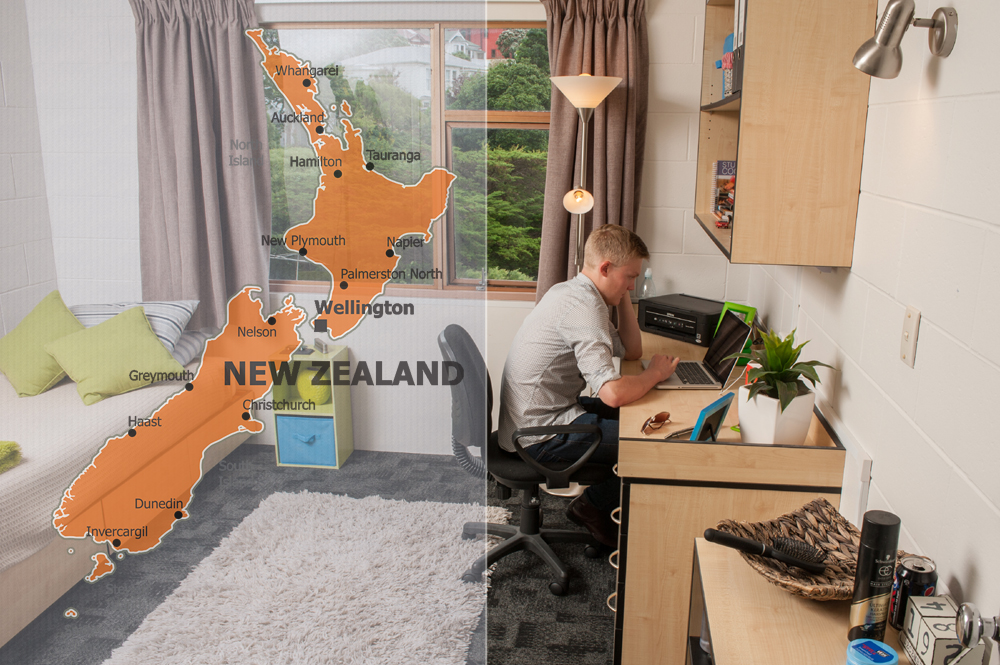Study Abroad
Accommodation
 Most universities and Best College in NZ can assist students for finding accommodation on or near to their campus. Here is a list of most common options:
Most universities and Best College in NZ can assist students for finding accommodation on or near to their campus. Here is a list of most common options:
1. Student Hostels : These are usually located on the campus or nearby, with single or twin rooms. Bed linen and cleaning facilities are provided. Meals are eaten in a communal dining hall, with special dietary needs catered to. A warden lives on site, and social and cultural activities are organised for residents. Hostels usually have computer laboratories and recreation rooms. Some institutions provide "self-catering" hostels where 6-8 students have their own bedrooms and share a kitchen and living room.
2. Home stay/Private Board : This is a room of your own in a suburban house, usually with a garden and lawns. Your host family provides meals. Interacting with your host family and meeting their neighbours and friends is an excellent way to improve your English. The host family helps you make phone calls, read bus timetables, find a doctor and so on. But home stay is not like living in a hotel. Some "give and take" is expected, as you become part of the family.
3. Going "flatting" : This term means renting a house or flat (apartment) singly or with other people. Choose your own flatmates of the same or opposite sex with mixed accommodation, ranging from a two-bedroom apartment to a large house on its own land. Most rental properties are unfurnished, other than an oven, a laundry facility, curtains and carpet. The landlord does not have to provide heating. You pay for electricity, gas, telephone and water, including connection charges. A "bond" of up to four weeks' rent is held by Tenancy Services and refunded when you move out, if the flat is still in good condition. Tenancy Services, a division of the Ministry of Housing has information about dispute resolution procedures and your rights and obligations. For more information on housing options and arrangements, contact one of our counsellors today.
Working in New Zealand
International students who have graduated from a course that would gain points under Skilled Migrant Category are eligible for a 1 year job search permit.
Once Graduates have gained work this way, they can go on to apply for either a post-study2 year work permit or, proceed directly to apply for residency under the Skilled Migrant Category. Students are eligible to work up to 20 hours a week. Anyone undertaking a course of 12 months or more are able to apply to work full-time over the summer holidays.
Partners of students studying in areas of absolute skill shortage and partners of all postgraduate students are able to apply for an open work permit valid for the duration of the student's course of study.